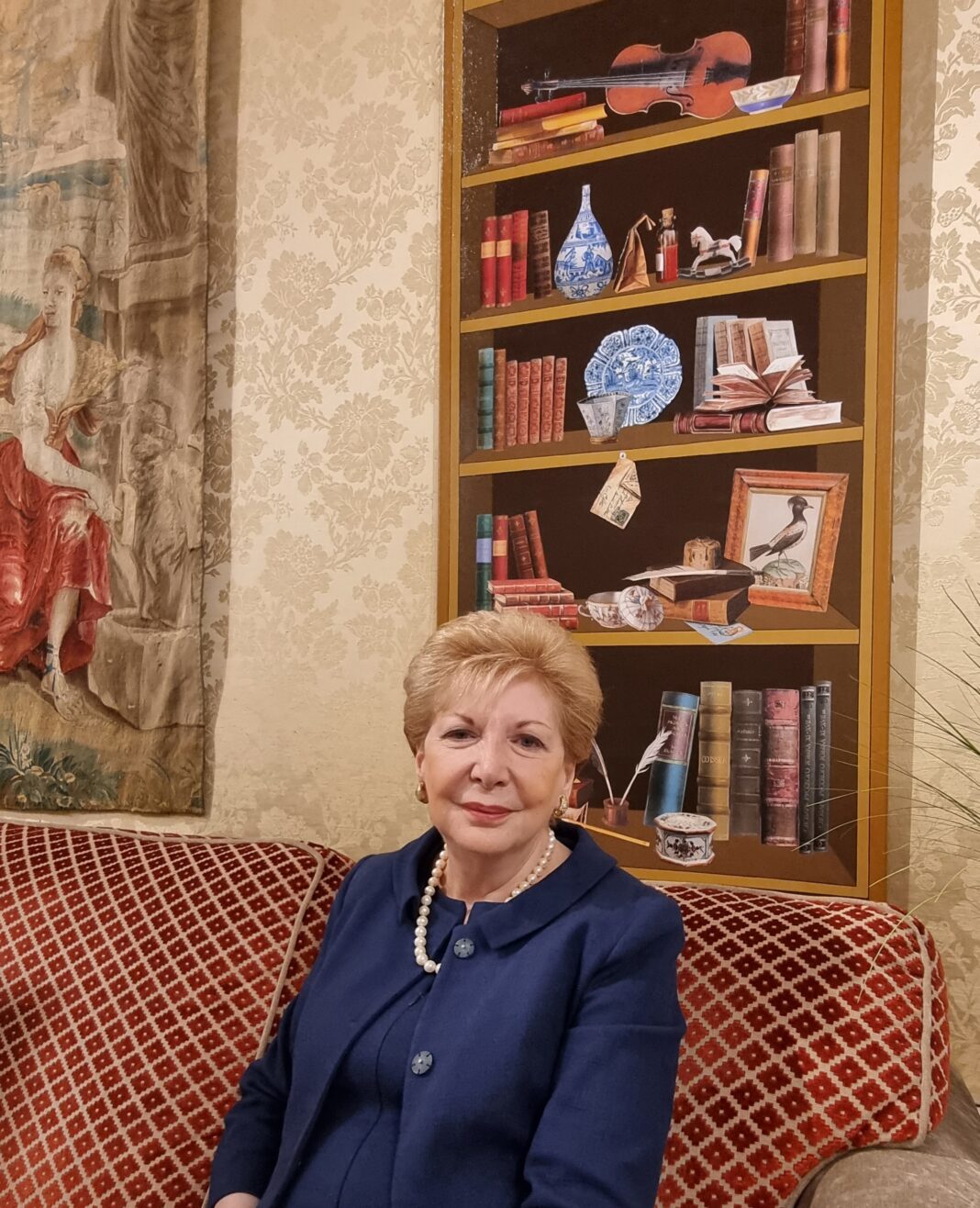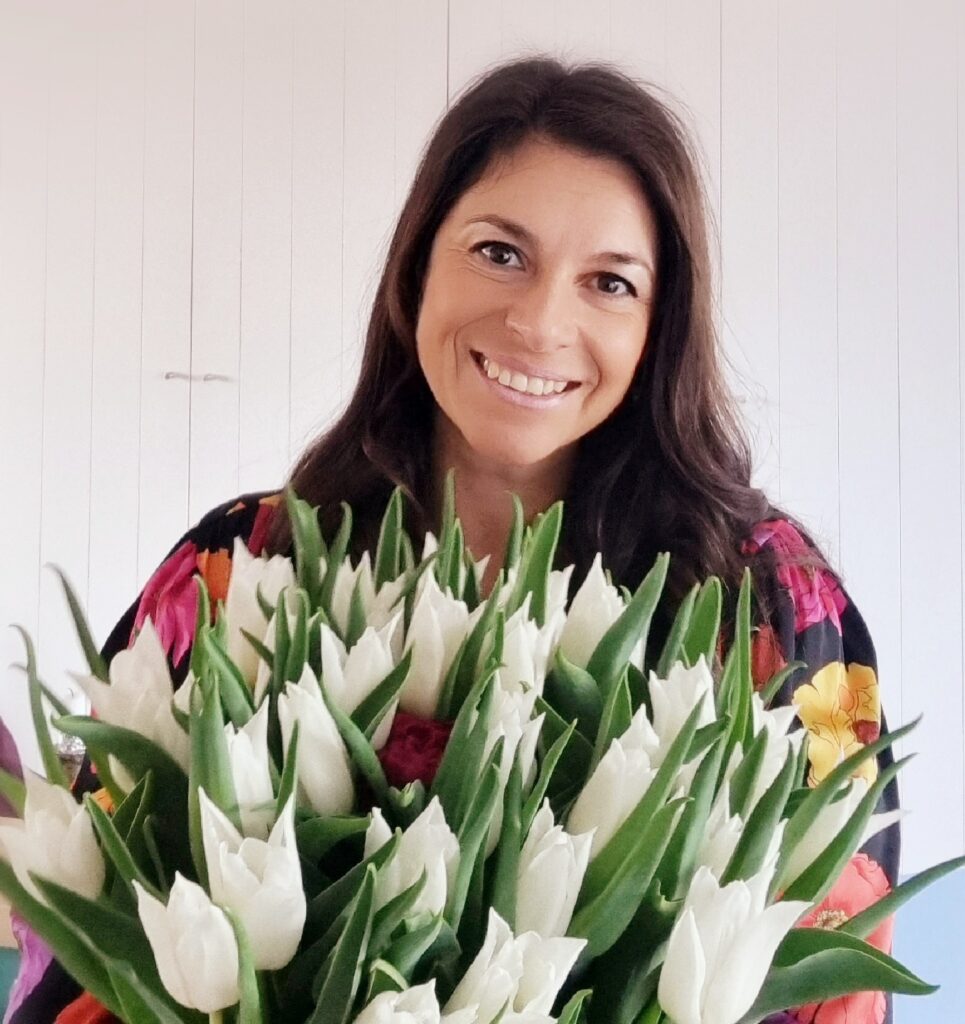By Alexandra Paucescu
With her aristocratic and distinguished looks, Elizabetta Siggia sends a strong message to anyone who has the pleasure to meet her. But if you get to know her better, you discover, above appearances, a fascinating woman, with an educated vibe and a tireless mind.
Born in Rome, from a renowned painter mother and an engineer father, she cultivated her love for art and artistic talent from an early age. ‘I was fortunate to grow up in a family where art was at the center of our interests’, she says to me. She graduated from the Academy of Fine Arts and later specialized in fresco and oil painting restoration. She started her career as a high-school teacher, but found her passion working for over 28 years at the Etruscan Museum of Villa Giulia in Rome, as an Art Historian.
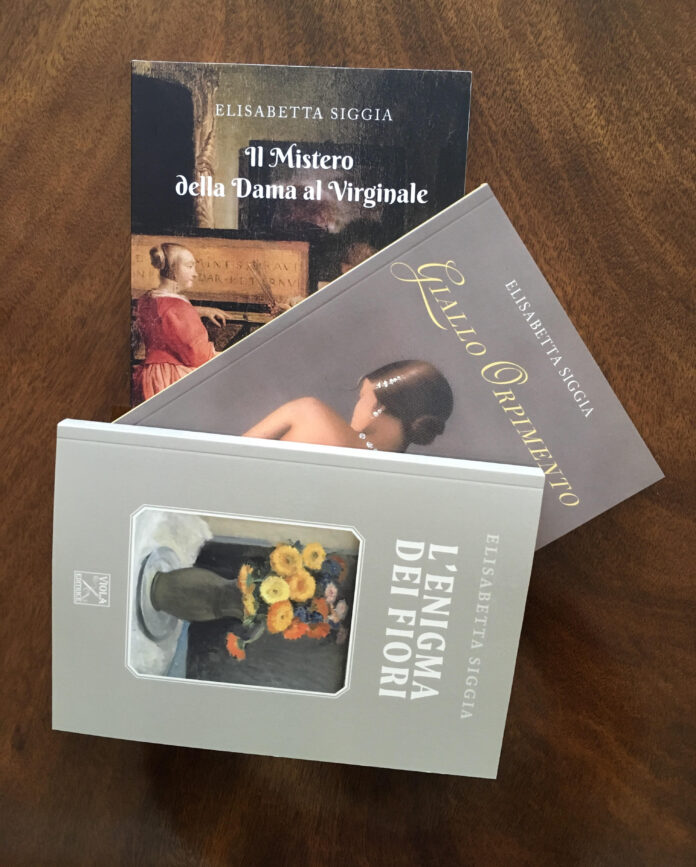
‘Working in a museum has been a great cultural experience for me, enriching my life with new daily discoveries. Moreover, I had the privilege of working in one of Rome’s most beautiful places, the summer residence of Pope Julius III, adorned with valuable frescoes and stucco, housing the most important collection of Etruscan art. Alongside my museum work, I opened, together with a colleague, an oil painting restoration studio’.
But life had much more to offer and took her around the world, enhancing even more her artistic universe.
‘I met my husband at a dinner with friends, and only one year later we got married, just as he was leaving for Dhaka, Bangladesh as Ambassador of Italy’.
China, Germany and Belgium have been ‘HOME’ for her during her husband’s long diplomatic career. She remembers dearly about Shanghai, ‘the most active and interesting period’, but eventually they decided to stay in Brussels, where their son lives and where they have an active and fulfilling family and social life.
’Undoubtedly, the wife of a diplomat has the opportunity to live in different countries and immerse herself in different cultures. This has allowed me to broaden my knowledge of traditions, learn new languages, experience fascinating places and create unforgettable memories while enriching my cultural perspectives,. However, diplomatic life can be demanding and requires flexibility, but such challenges helped me develop a greater adaptability and maturity’.
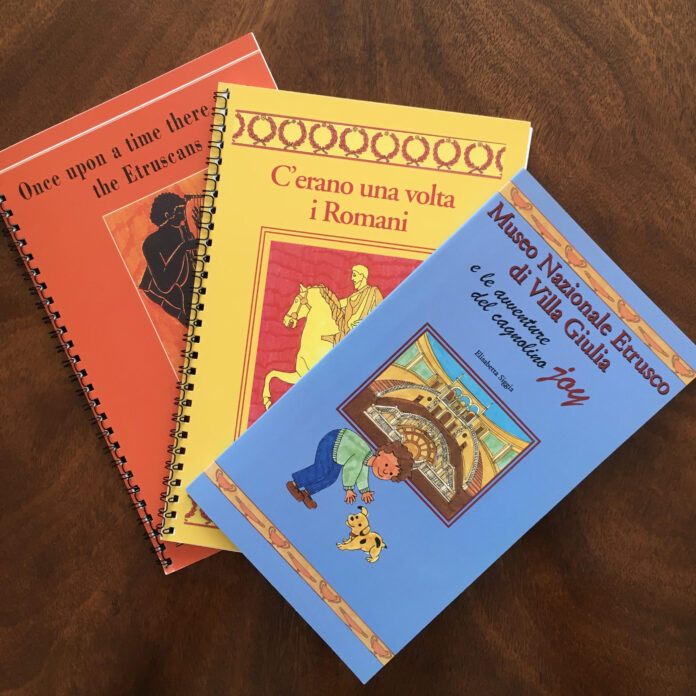
She recalls that leaving a familiar place behind, after a few years, was often challenging.
‘It’s natural to develop an affection for the environment around you, the streets, the parks, the places you have frequented, to build memories and a sense of belonging. Leaving all of that can be emotionally distressing. Furthermore, the friendships you have formed during your stay in a foreign country can be deep and meaningful. You have shared moments of joy, challenges, cultural experiences, and created a social support network.
Losing these relationships can leave a void in your heart’.
That is diplomatic life for all of us, diplomatic spouses, but it teaches about improving our social skills and emotional intelligence with each new diplomatic posting.
Elisabetta talked to me also about the role that we have in our husbands’ careers and in the diplomatic world, in general.
‘A common misconception about diplomatic spouses is that they are merely decorative figures. This idea often stems from gender stereotypes. However, a diplomat’s wife can have a very important and influential role in supporting her husband’s work and promoting the interests of their country. She can fulfill a variety of functions, from organizing social events to establish diplomatic relations, supporting cultural and humanitarian activities, and representing the country on various official occasions. I really think it is essential to promote greater awareness and understanding of the diplomatic spouses’ role.
They deserve respect and recognition for their work. Through education and promotion of gender equality, a new modern society can be created, where the role of diplomats’ partners is fully recognized and appreciated’.
Meanwhile Elisabetta reminded about one of the main goals of diplomatic work, to maintain an atmosphere of mutual respect and courtesy among countries in order to foster open and constructive communication and peacefully resolve any differences. She also noted that certain actions or words can create tensions or conflicts between countries and undermine the progress of international relations. She certainly understands what diplomacy is all about and clearly contributed in an active way, over the years, in building diplomatic bridges.
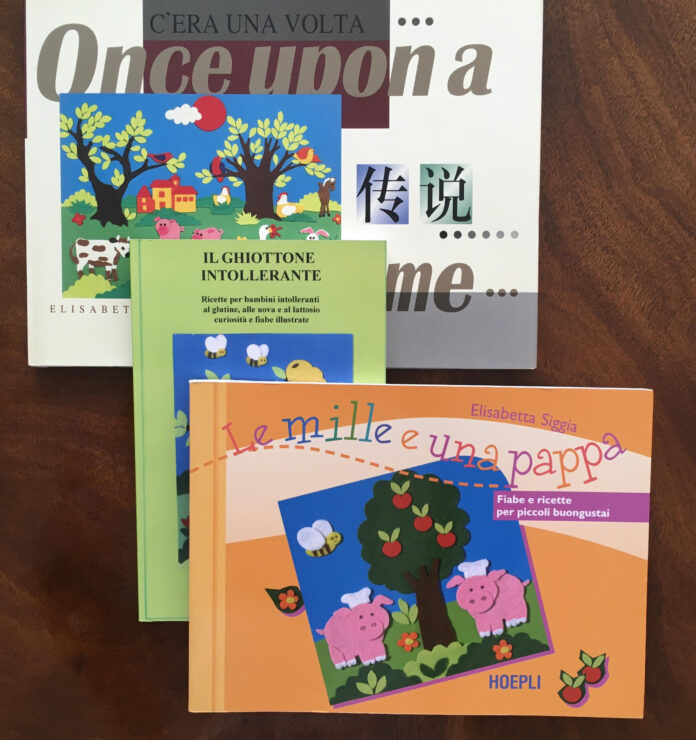
While living her diplomatic life in different parts of the world, she never silenced her artistic talent and always found new ways to express her creativity.
‘During the diplomatic years abroad, I wrote and self-illustrated several fairy tale books for children. In Shanghai, I had the great satisfaction of seeing three of my books published, even translated into Chinese and English, and which the local authorities then distributed to elementary schools in the city. I felt particularly proud and it was an incredibly gratifying experience to see my work come to life. The Vice Mayor of the city organized presentations, with music and speeches, to celebrate each book launch. It was something that filled my heart with joy and gratitude. Upon returning to Rome, I continued publishing other books related to the world of children’.
A lover of cuisine, she has also published books of recipes and the history of cooking. In recent years, she started writing a series of detective novels, centered on the art world. I discovered many of these books and also some of her trompe- style paintings, as I joined her art studio in Brussels, where she teaches decorative painting, initiating others in the world of art and beauty, that she so much adores.
Her artistic activity mainly revolves around trompe-l’oeil painting which she has exhibited in various galleries and cultural institutions. She also tells me that she is now documenting for a new mystery novel.
How exciting, how fascinating this woman truly is!
About the author:
Alexandra Paucescu- Author of “Just a Diplomatic Spouse” Romanian, management graduate with a Master in business, cultural diplomacy and international relations studies.
She speaks Romanian, English, French, German and Italian, gives lectures on intercultural communication and is an active NGO volunteer.

